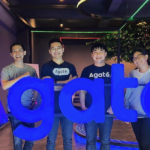- Russia weaponizes AI for Ukraine war misinformation
- Meta exposes top global source of coordinated inauthentic behavior
- Tech giant effectively counters AI-powered influence operations
From Trolls to Tech
Meta’s latest security report sheds light on Russia’s evolving tactics in the realm of digital misinformation. The tech giant has identified Russia as the primary source of coordinated inauthentic behavior (CIB) globally, orchestrating at least 39 covert influence operations.
These campaigns have taken a technological leap, now leveraging generative AI to create convincing fake journalist personas and publish distorted news stories on fictitious websites.
This shift marks a significant escalation in the sophistication of misinformation efforts, blending advanced technology with traditional propaganda techniques.

Ukraine in the Crosshairs
Unlike previous efforts that exploited a wide range of social and cultural issues, Russia’s current misinformation campaign maintains a laser focus on rallying support for its war in Ukraine.
Meta’s intelligence suggests a strategic pivot in the lead-up to the US elections in November. Russian operatives are expected to amplify voices expressing pro-Russia views on the war, while simultaneously promoting commentary that supports candidates opposing aid to Ukraine.
Their tactics may include blaming US economic hardships on financial assistance to Ukraine and portraying the Ukrainian government as unreliable, aiming to sway public opinion and potentially influence policy decisions.

AI’s Double-Edged Sword
The integration of AI into misinformation campaigns presents both challenges and opportunities in the fight against digital deception. Despite the use of advanced technology, Meta reports that these AI-powered tactics provide only incremental gains for threat actors.
Surprisingly, the company continues to effectively disrupt these operations, noting that many users can identify and call out these networks as trolls.
This suggests that while AI can enhance the volume and appearance of legitimacy in fake content, it hasn’t necessarily improved its ability to engage authentic audiences or evade detection.

Meta’s Countermeasures
In response to these evolving threats, Meta has ramped up its efforts to combat misinformation. The company is particularly targeting and removing deceptive posts and accounts that rely heavily on AI or are run by for-hire deception campaigns.
Meta’s approach combines technological solutions with human expertise, aiming to stay one step ahead of those attempting to manipulate public discourse.









